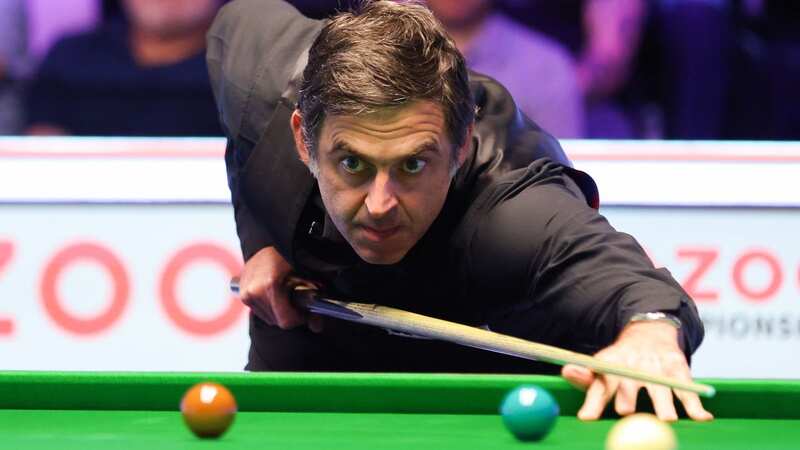'Ronnie O'Sullivan's documentary shows we still don't understand mental health'
Ronnie O’Sullivan is one of Britain’s greatest sportsmen.
Say what you like about snooker – a sport that captured up to 18 million viewers for its finals in the 80s – it still retains a massive audience, yours truly included.
And Ronnie has dominated it for 30 years. He is the first player to win 40 ranking titles. Effortlessly ambidextrous, he picks and chooses the tournaments he plays in these days but, quite simply, if he fancies winning one, he does.
His ability to combine speed with pinpoint accuracy shot him to the top of the game as a teenager and attracted new audiences around the world.
Breathtaking again as he became the oldest player to win the UK Championship on Sunday night – 30 years after he became the youngest, his timing couldn’t be better.
 England star Joe Marler reflects on lowest point after fight with pregnant wife
England star Joe Marler reflects on lowest point after fight with pregnant wife
He now has a phenomenal 22nd Triple Crown titles – which involves winning the World Championship, UK Championship and Masters all in the same year.
O’Sullivan’s brilliant documentary, The Edge of Everything, came out two weeks ago. In it, he speaks about the many times he tried to put snooker to one side to prioritise his mental health – only to be met with a widespread metaphorical rolling of the eyes by the sport.
A sort of “here he goes again”. We think we understand mental health because of the many campaigns fronted by high-profile sports stars and celebrities. But we still don’t. Not really.
Which is why last week there was such a kerfuffle when Owen Farrell, England’s record points scorer, revealed he will miss the 2024 Six Nations to prioritise his own mental health.
More and more sports stars are doing likewise these days – including England Lioness Fran Kirby in football, and Premier League Burnley’s striker Lyle Foster who took time out from the game last month. Ben Stokes has done it in cricket and Naomi Osaka in tennis.
Gymnastics superstar Simone Biles took a two-year break from the sport. And there are so many more able to say to themselves “it’s only a game”. So often in sport and society, “Be kind” becomes a distant memory when the player on any given team performs below par, when a footballer misses a penalty, when a jockey fails to win a race or a golfer misses a putt.
We forget all about the likes of the Everton and former England midfielder Dele Alli who spoke earlier this year about his complicated upbringing which left him dealing with so much, so young and making poor decisions that affected his performance.
Quite rightly, Farrell received widespread praise for putting himself first last week – but when Osaka did it, she was hammered. Some people called her a diva, petulant. They accused her of getting it completely wrong because she didn’t make decisions on their terms.
We think we understand mental health but we don’t. Not really. We know all the right things to say – but there are still so many people who privately reckon they’d take the money for half the problems. You wouldn’t. Not really. And if we created a better culture within our society, you would understand why.
Read more similar news:
Comments:
comments powered by Disqus

































